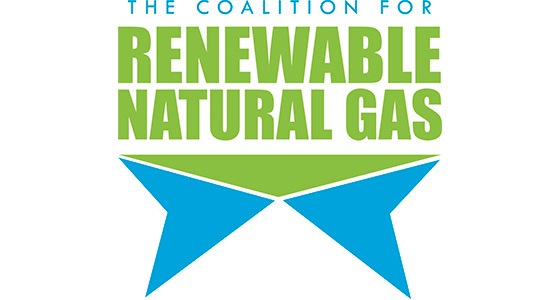November 14, 2025

CBA’s Reaction to Federal Budget 2025
Budget 2025 highlights export diversification, infrastructure, and government efficiency as priorities for the coming year. The budget confirms the government’s intention to move forward with previously announced measures related to biofuels, though it does not introduce additional supports for biogas or RNG at this stage.
Read more
August 14, 2025

Insights from the 2024 CFR Credit Market Report
On July 11, Environment and Climate Change Canada (ECCC) published the Clean Fuel Regulations 2024 Quarterly Credit Market Report covering the four quarters of the 2024 compliance period. The report summarizes activity in the compliance credit market, including credit creation and credit transfers that occurred between January 1 and December 31, 2024
Read more
June 13, 2025

Gaining Momentum: Highlights from CBA’s Third Annual Hill Day
The Canadian Biogas Association (CBA) hosted its third annual spring Hill Day on June 2 and 3 in Ottawa, ON. The action-packed two days included 11 meetings with more than 20 government stakeholders and a Meet & Greet evening reception at the Château Laurier, with nearly 100 attendees, including MPs and Senators interested in learning more about biogas.
Read more
April 30, 2025

Liberals Elected to Minority Government with Clean Fuel Commitments
The Liberal Party of Canada, led by Mark Carney, won a minority with 169 seats in Monday’s federal election, with the Conservative Party elected as the Official Opposition with 144 seats. The Liberal Party platform pledged to reduce Canada’s reliance on imported clean fuels, progress on ITCs, invest in clean agricultural technologies, and facilitate the flow of clean energy across provinces, and the Canadian Biogas Association is eager to get to work on ensuring these are realized. Other relevant Liberal commitments on the campaign trail included providing direct support for clean energy projects and leveraging CUSMA renegotiations to establish better North American regulatory alignment on biofuels.
Read more
July 09, 2024

What We Have Learned from the CFR Credit Market Report
ECCC released the long-awaited Clean Fuel Regulations credit market report on June 26th. What have we learned about the role biogas & RNG are playing in the federal Clean Fuel Regulations (CFR)?
Read more
June 10, 2024

CBA Continues to Raise Awareness of Biogas & RNG on Second Annual Hill Day
The Canadian Biogas Association (CBA) and some of our members were back on Parliament Hill in May for two days of engagement with government officials, MPs, Ministers’ offices, and Senators. The busy schedule included meetings and an evening reception at the Chateau Laurier with an even larger attendance than last year.
Read more
April 17, 2024

Biogas and renewable natural gas development recognized as a top priority in Budget 2024 biofuel announcement
The Canadian Biogas Association (CBA) is pleased to see the development of Canada’s biogas & RNG industry included as a priority in today’s federal budget. The CBA is optimistic that the budget’s announcement of several new streams of funding for biofuel projects will begin to move the biogas & RNG industry forward. The announcement is a positive signal to our sector, which will create jobs and investment opportunities in Canada.
Read more
February 28, 2024

Raising Awareness for Biogas & RNG
Raising awareness is an integral part of the work the Canadian Biogas Association (CBA) is doing to broaden the understanding and adoption of biogas & RNG. Over the last few months, we’ve launched two campaigns to increase this awareness among different audiences.
Read more
November 29, 2023

Fall Economic Statement 2023 Falls Short of Needed Biogas & RNG Industry Support
On November 21, the federal government released its Fall Economic Statement (FES), providing an overview of the fiscal outlook and priority policies ahead of the upcoming spring Budget. FES 2023 provided a slimmed-down fiscal update that centered around the high cost of living and ultimately included very little new spending.
Read more
November 14, 2023

New Coalition Proposes Plan to Increase Supply and Demand for Clean Gas in Canada
A diverse collection of companies and organizations have come together to form the Clean Gas Coalition, led by the Canadian Biogas Association (CBA). The Coalition’s goal is to increase regulatory support for clean gas which includes biogas, renewable natural gas (RNG), and low-carbon hydrogen, by advocating for a federal Clean Gas Standard.
Read more
June 28, 2023

CBA and Members Well-Received on First Hill Day in Ottawa
The Canadian Biogas Association (CBA) and some of our members were on Parliament Hill in early June for two days of engagement with government officials, MPs, Ministers’ offices, and Senators. The busy schedule included meetings and an evening reception, with remarks delivered by Executive Director Jennifer Green.
Read more
March 28, 2023

Budget 2023 fails to keep Canadian biogas producers competitive
On March 28, Deputy Prime Minister and Minister of Finance, the Hon. Chrystia Freeland, delivered Budget 2023 - A Made-in-Canada Plan: Strong Middle Class, Affordable Economy, Healthy Future in the House of Commons. This budget provided further details on Canada’s response to the American Inflation Reduction Act (IRA), but much like the Fall Economic Statement (FES) 2022 it fails to put Canada on an even footing.
Read more
February 17, 2023

Making Budget 2023 Work for Biogas & RNG
With the release of the 2022 Fall Economic Statement in November, all eyes are on Budget 2023 to see how Finance Canada will respond to the American Inflation Reduction Act and finalize incentives for clean technologies.
Read more
November 09, 2022

Finance Canada’s new Investment Tax Credit Missing a Tool in its Emission Reduction Toolbox
On November 3rd, 2022, the federal government released the 2022 Fall Economic Statement (FES). The statement outlines the state of the Canadian economy and provided key details on promises made in Budget 2022.
Specifically, the FES provided details on programs designed to spur investment in Canada’s clean fuels sector which has needed support to attract investment after the passage of the American Inflation Reduction Act (IRA) which was signed into law by President Joe Biden in August of this year. The IRA contains massive investments and tax credits designed to spur growth in the green economy in the U.S.
Read more
July 11, 2022

The newly released Clean Fuel Regulations are a step forward, but there is still work to be done to decarbonize gaseous fuels
Last week, Environment and Climate Change Canada released the Clean Fuel Regulations (CFR); filling a key mandate promise from Prime Minister Trudeau after nearly five years since the regulations were first circulated in a discussion paper. The finalized CFR is a key component of Canada’s ambitious climate plan, and part of a multi-pronged approach to achieving Canada’s climate targets by 2050. The CFR aims to gradually reduce the lifecycle carbon intensity of liquid fossil fuels energy used across the country, working to achieve 20 million tons in annual reductions in greenhouse gas (GHG) emissions by 2030, towards a path to net-zero emissions by 2050. The Regulations, alongside existing plans like the Emissions Reduction Plan and Canada’s recent commitment to the Global Methane Pledge are part of an integrated approach to practically and effectively reducing GHG emissions across all emission-heavy sectors while also contributing to energy security, carbon mitigation, air quality and sustainable industry in the long-term.
Read more











